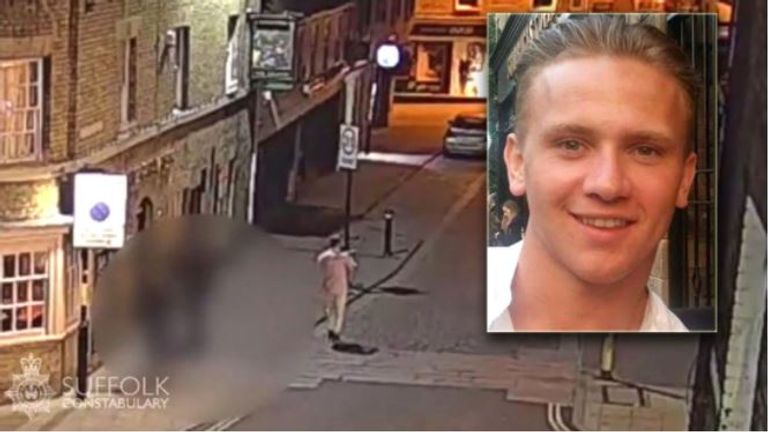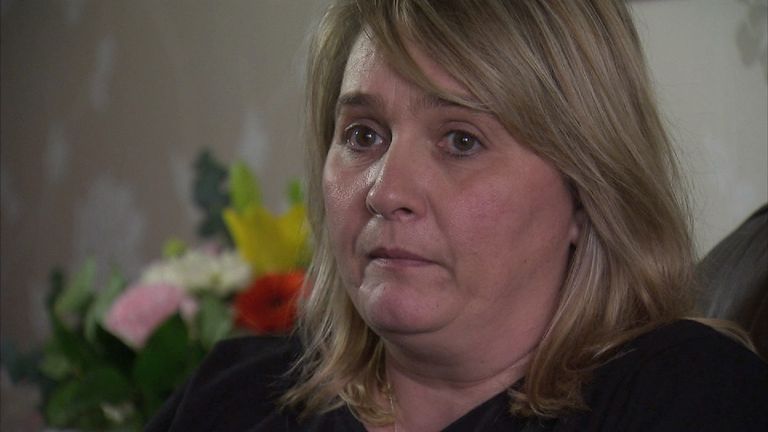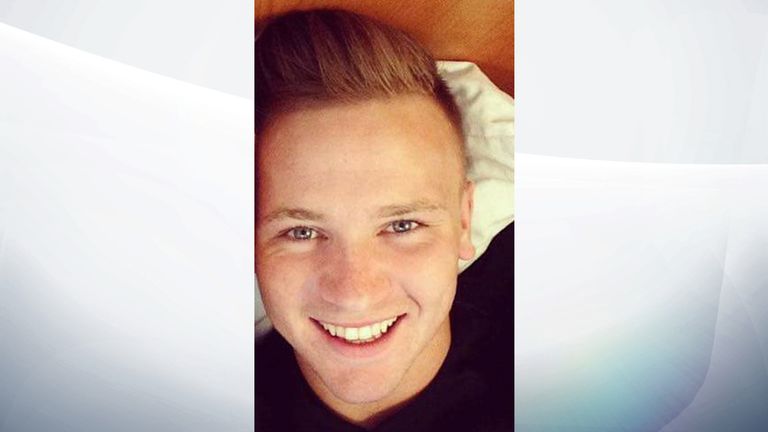I haven't given up on finding my son, says Corrie McKeague's mother
Nicola Urquhart says she will keep looking for answers because there's still no corroborated evidence of what happened to her son.
Tuesday 31 July 2018 13:55, UK
The mother of missing airman Corrie McKeague has said she has "not given up" on finding her son, despite his father saying his remains are "essentially irretrievable".
Nicola Urquhart said on Facebook: "If any person feels they have the answers they need to move on, I completely respect that.
"I can only keep fighting for the answers I need - to do what helps me, my sons and our family through this.
"This is not a criticism of how any other person deals with their guilt or grief."
The 23-year-old airman - who was stationed at RAF Honington - disappeared after a night out in Bury St Edmunds in September 2016.
The leading theory is that he fell asleep in a large bin and was taken to a waste disposal site by a refuse lorry.
A landfill site was searched as part of the inquiry, but in March the case was reportedly passed to a cold case team.
"We have not given up," said Ms Urquhart.
"Corrie is missing, he has not been found, nor has there been any corroborated evidence shown to me yet to say what has happened to my son."
However, she said she realises her son has not simply run away.
"Although to the very depths of my soul, I know and feel Corrie is not AWOL," she wrote.
Her comments come after Corrie's father, Martin McKeague, wrote his own Facebook post saying that "Corrie is no longer missing"
He explained: "What we mean by this is that after looking at all of the facts and evidence we now know what happened to our son.
"We are certain he is somewhere in the Suffolk waste disposal system, but his remains are essentially irretrievable."
Mr McKeague said police visited the family in October last year and in February.
The evidence was "as thorough as it was compelling", he said, adding that experts had "concluded beyond any doubt that Corrie had ended up in the Suffolk waste disposal system".
He added that the remaining areas not covered in the inquiry are either "too toxic to search" or "so vast it could take years to do so".




